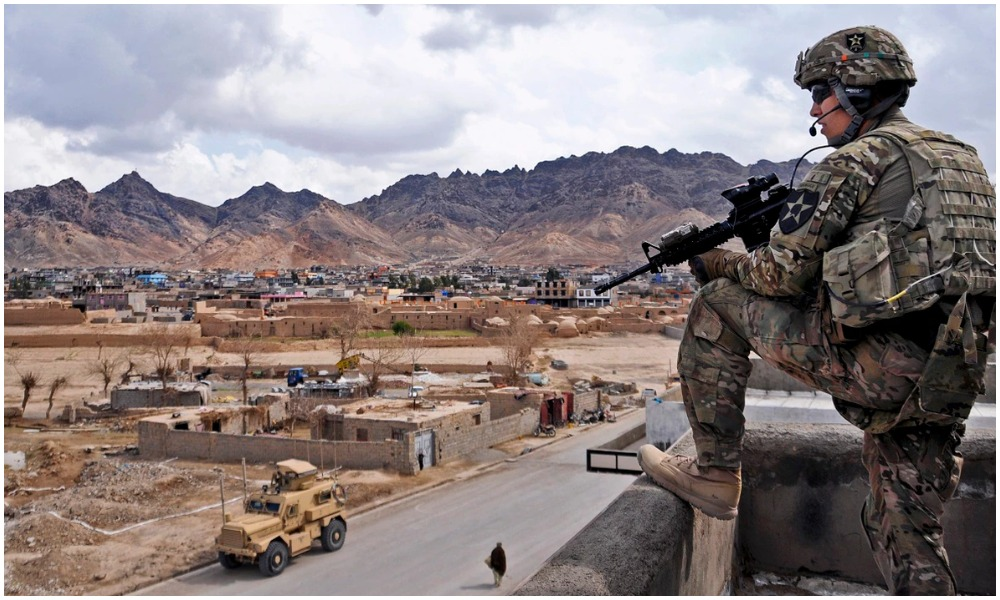DoD mum on regional troop presence plans after withdrawal

Defense officials say they will maintain some US troop presence near Afghanistan for counterterrorism operations into the future, but would not say where that force would be based or whether it could be in place before all American troops leave the war-torn country.
According to Military Times, David Helvey, acting assistant secretary of defense for Indo-Pacific Affairs said during a hearing before the House Armed Services Committee on Wednesday: “Those planning efforts are in parallel [with the drawdown], but they’re not linked.”
“We have a substantial capability in the Middle East. We’ll still have the ability to prosecute terrorism from positions around the region. Looking at what that footprint is going to be like within the region is going to be an important part of the equation,” he said.
The official withdrawal of US troops started on May 1 and is expected to be finished by September 11.
On Tuesday, US Central Command officials said withdrawal work is already six percent to 12 percent complete.
Defense officials have also been reluctant to unveil their post-withdrawal plans for the region, promising a regional security force but providing few details.
Meanwhile, Helvey told the house committee on Wednesday that military leaders will “be able to help to manage and mitigate the threat of terrorism that can emanate from Afghanistan,” thanks to established relationships with the government there.
He also noted that officials are reassessing their force levels throughout the region now, and looking for “areas that are closer to Afghanistan” for positioning American troops. Helvey declined to name any specific countries that may host a sizable contingent of service members.
He also declined to elaborate on how many US military forces would be stationed at American diplomatic facilities in Afghanistan, saying only that the issue is under review.
Helvey said “we’ve learned a lot over the past 20 years in how to address transnational terrorist threats” and echoed comments from Biden that the country needs to work more closely with international partners to root out and eliminate terrorist groups, Military Times reported.
Several Republican lawmakers took exception to that overview, saying that a more detailed strategy is needed to offset the “hasty” withdrawal of troops.
But Military Times reported that House Armed Services Committee Chairman Adam Smith pushed back on that criticism, calling the Biden plan “the best decision in a series of bad options” for the country.
“You cannot tell me that after 20 years, doing the same thing for another one or five or 10 years would have changed anything,” he said. “We would have been asking people to die to not accomplish anything. That’s a really tough thing to do.”
